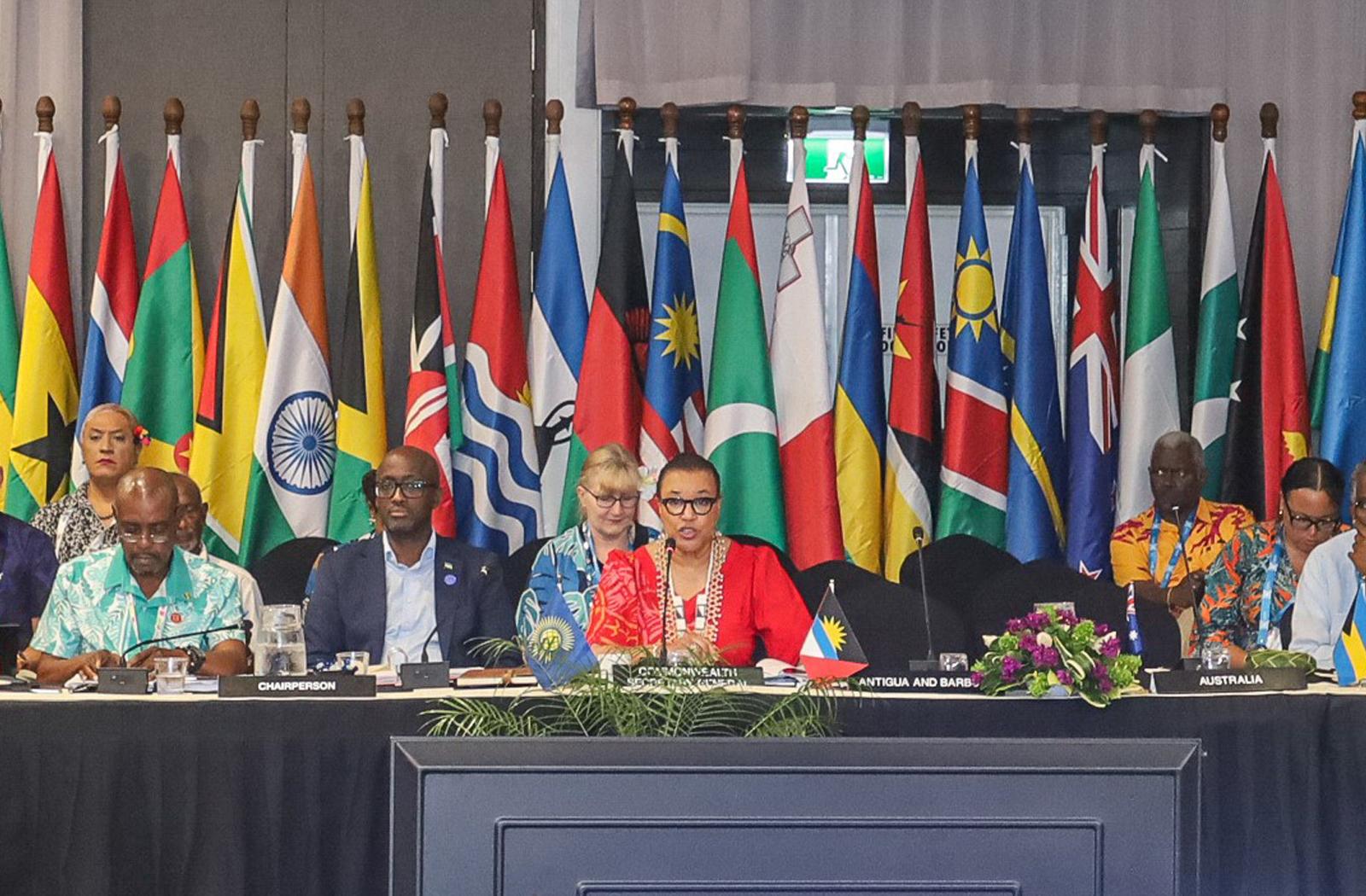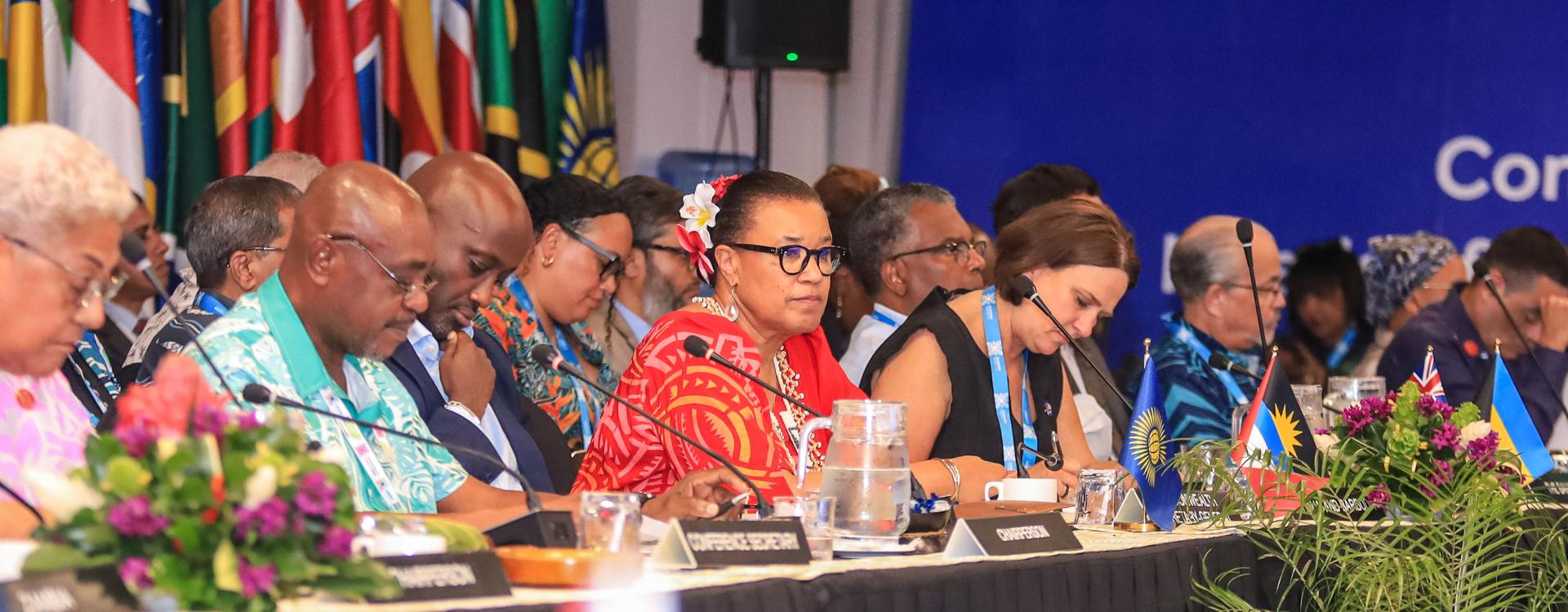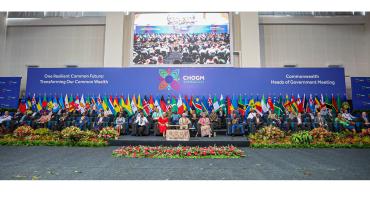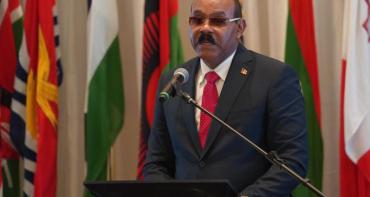The Commonwealth Ministerial Meeting on Small States (CMMSS) convened today in Apia, Samoa, at a critical juncture as the country this week becomes the first Pacific Small Island Developing State (SIDS) to host the Commonwealth Heads of Government Meeting (CHOGM). This ministerial meeting highlights the urgent need to tackle economic vulnerability, climate change, access to sustainable finance and debt distress – key challenges faced by the world’s smallest and most vulnerable nations.

The Commonwealth Ministerial Meeting on Small States (CMMSS) convened today in Apia, Samoa, at a critical juncture as the country this week becomes the first Pacific Small Island Developing State (SIDS) to host the Commonwealth Heads of Government Meeting (CHOGM). This ministerial meeting highlights the urgent need to tackle economic vulnerability, climate change, access to sustainable finance and debt distress – key challenges faced by the world’s smallest and most vulnerable nations.
A unified approach for resilient economies
Aligning to the CHOGM 2024 theme, “One Resilient Common Future: Transforming our Common Wealth”, this ministerial meeting brought together foreign ministers, leaders, and advocates from across the Commonwealth to explore sustainable solutions to build resilient economies for small states.
Ministers welcomed the focus areas outlined in the UN-Commonwealth Joint Advocacy Strategy for Small States, including mobilising global action, strengthening partnerships, addressing public debt distress, enhancing climate resilience, and improving access to finance for small states.
The Commonwealth Secretary-General, Rt Hon Patricia Scotland KC, in her opening remarks, highlighted the continued vulnerabilities faced by small states, particularly in the wake of the COVID-19 pandemic, intensifying climate impacts, and ongoing global economic shifts. She said:
“Our small states contribute the least to global emissions but bear the brunt of climate impacts. Today, as we come together, we must renew our advocacy for justice, for stronger financial support, and for the reform of international systems that continue to overlook the challenges we face. We are committed to helping you build economic resilience, accelerate climate action and access development finance on affordable terms. The strength of this forum lies in its unity of purpose and action because we cannot persuade the world to act without a concerted effort to raise the voices of small states on every international platform.”

Innovative Financing for Vulnerable Countries
Ministers highlighted innovative financing mechanisms, urging public and private creditors to adopt natural disaster clauses, Climate Resilient Debt Clauses, and other Disaster Risk Finance initiatives to enhance the resilience of vulnerable countries. They also stressed the importance of a coordinated approach for consistent messaging at high-level global meetings on issues pertinent to small states.
The meeting was co-chaired by the Prime Minister and Minister of Foreign Affairs and Trade of Samoa, the Honourable Fiamē Naomi Mataʻafa, and the Honourable Dr Tambo Gina, Minister of Economic Planning and Development of Eswatini.
In his opening remarks, Hon. Dr Tambo Gina said:
“The theme for the 2024 Commonwealth Heads of Government Meeting (CHOGM) — One Resilient Common Future: Transforming Our Commonwealth — could not be more fitting. With fewer than six years remaining to achieve the Sustainable Development Goals, this meeting must serve as a turning point for identifying tangible solutions that will strengthen the resilience of our economies.”
Key outcomes
- Ministers reaffirmed the need for international financial institutions to consider using vulnerability indexes, such as the Commonwealth’s Universal Vulnerability Index (UVI) and the Multidimensional Vulnerability Index (MVI).
- Strengthening partnerships was recognised as vital for small states in achieving the SDGs. Ministers reflected on the Antigua and Barbuda Agenda for SIDS and the Pact for the Future, highlighting the need for renewed collaboration with international partners. They emphasised the importance of amplifying the voices of small states, particularly in the lead-up to COP29 and the fourth International Financing for Development Conference.
- Ministers received updates on Commonwealth initiatives, including the Commonwealth Sovereign Sustainable Debt Network and the Commonwealth Debt Swaps Guidance Note, which aim to bolster financial resilience and capacity building for small states. An update on the Virtual Centre for Small States was also provided.
- Ministers reviewed the proposed Commonwealth Programme of Action for Small States (2024-2026), which will guide advocacy and support efforts over the next two years, focusing on climate action, debt sustainability, and access to affordable development finance.
As the Commonwealth advocates for its smallest members, this ministerial meeting serves as a vital platform for addressing the key issues facing small states. The outcomes of today’s discussions will directly contribute to shaping the broader CHOGM agenda.



